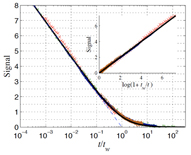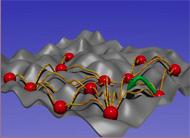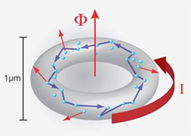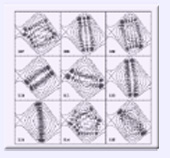Teaching
Some recent Courses and Lectures
I. Fluctuations and Noise (2011)
Yoseph Imry, Ariel Amir, Emanuele dalla-Torre
| Code | 20111082 | |
| Academic Year | 2011 | |
| Semester | Second Semester | |
| Credits | 2.00 | |
| Comments | ||
| Time & Location | Tuesdays 11:15 - 13:00 | Weissman Auditorium |
| Tutorials | Tuesdays 16:00 - 17:00 | K.B. Weissman, Seminar Room B |
| First Lecture | 15/03/2011 | |
|
Registration Last Date |
01/04/2011 | |
| Field(s) of Study | Physical Sciences |
| Syllabus |
|
| Literature |
|
| Some Classic Papers |
|
II. Statistical Mechanics, 1st semester (4/11/02 - 5/2/03)
Yoseph Imry, Erel Levin
Lectures: Mondays 9-11, Wednesdays 4-5, in the Weissman Auditorium
Problems: Wednesdays 5-6. The problems will be given every week and they have to be submitted on a bi- weekly basis (first submission: 20/11, second: 4/12, etc.).
Attending the lectures is not a must, but you have to submit ALL the problems, except when reasons such as illness or reserve service exist. This is highly recommended also for those not needing credit. The exercise grade will be a substantial part (1/3 -1/2) of the final grade.
The final exam, necessary for those interested in credit, will be in writing, most probably of the "open book" type. It is highly recommended to take Prof. Levinson's course "Transport Phenomena in Metals and Semiconductors", Mondays 11-1, in Weissman Room A. There will be some coordination between the two courses.
Feel free to contact us at any time, at fnimry@wicc.weizmann.ac.il, or erel.levin@weizmann.ac.il.
Books:
- L.D. Landau and E.M Lifschitz, Stat. Physics, Pergamon, Acad Press
- Notes by F. Bloch: Fundamentals of Stat. Mech. J. D. Walecka, ed. World Scientific
- R. Kubo, Stat. Mech. North Holland
- R. K. Pathria, Stat. Mech. Pergamon
- R.P. Feynmann, Stat. Mech., A set of lectures, 2nd edition (J. Shaham, ed,)
Syllabus
- Basis of Statistical Mechanics in both the classical and the quantum cases. The equal probability rule, the microcanonical ensemble. The concept of entropy. Thermodynamic ensembles. Basic principles of thermodynamics.
- The ideal gases, the classical gas, molecular structure and degrees of freedom, spin. Ideal Fermi gas, Ideal Bose gas. Bose condensation and its modern realizations. Quantum ideal gases with internal degrees of freedom.
- Classical non-ideal gases: The virial expansion, the Van der Waals equation of state, Debye-Hückel theory.
- Fluctuations: Thermodynamic fluctuations and correlation functions; dynamic fluctuations;experimental detection of correlation functions.
- Quantum non-ideal gases; Introduction to superfluidity. The Fermi liquid.
- Elements of classical phase transitions, the liquid-gas phase transition: The Van der Waals fluid, first order transitions, continuous transitions. Magnetic phase transitions: Mean-field and Landau theory, phenomenology, breakdown of Landau theory and the Ginzburg criterion, the Heisenberg and Ising models, the lattice gas model, the energy-entropy argument and the lower critical dimension, spontaneous symmetry breaking, breaking of ergodicity. Beyond mean-field: Fluctuations, the 1D Ising model, the transfer matrix method. Correlation functions, definitions of critical exponents, universality and scaling theory.
- (If time permits) Some dynamics: Temporal correlation functions. The fluctuation-dissipation theorem. The Onsager relationship. Diffusion. Elementary kinetic equations.




